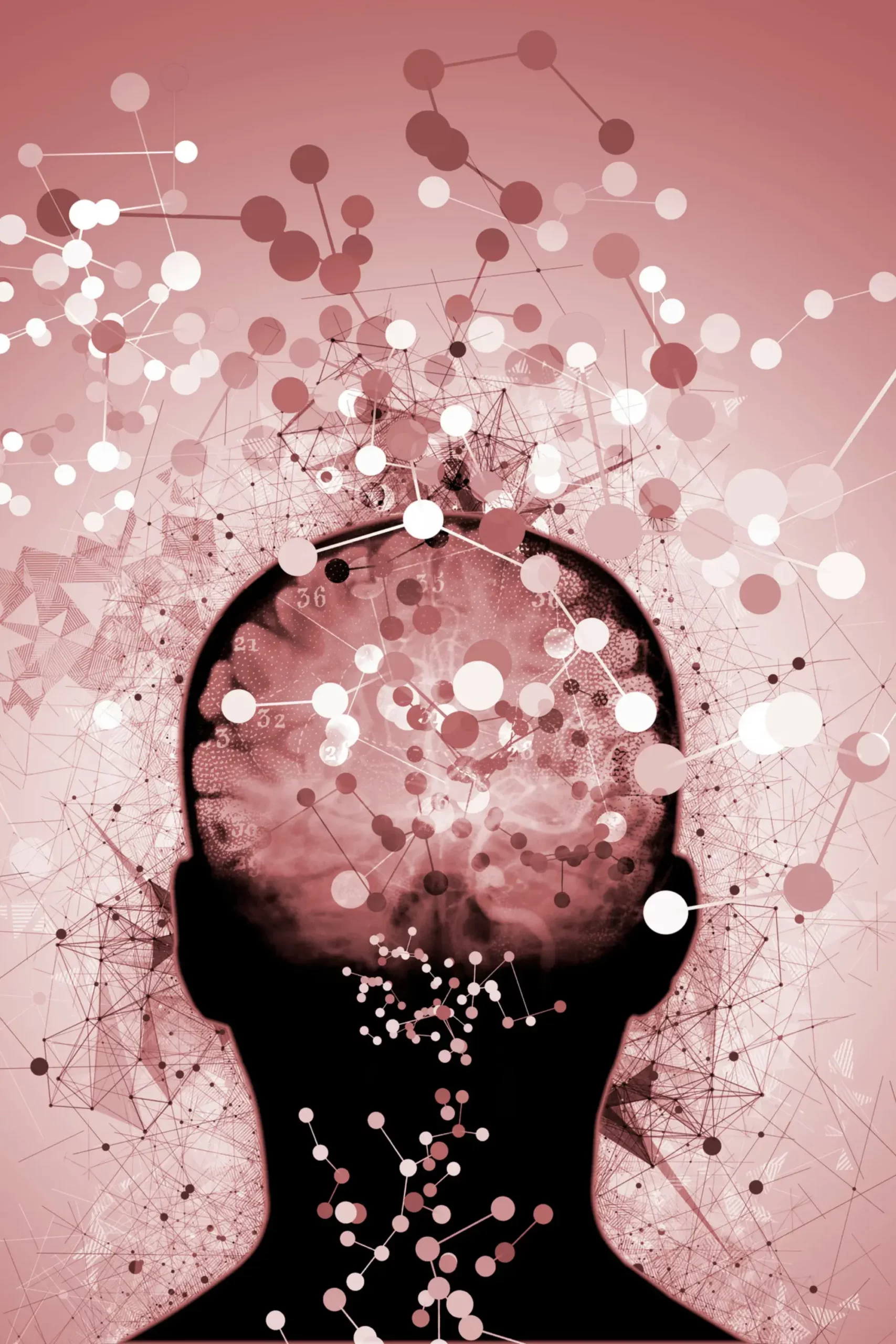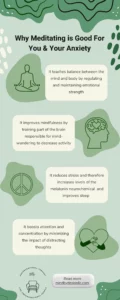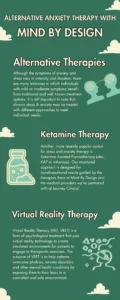Part 2:
Brain-Body Resilience in the Face of Trauma
This is Part 2: Brain-Body Resilience in the Face of Trauma where we take a deep dive into how the brain-body connection responds to trauma & the healing process.
Brain-Body Part 1 Quick Recap:
In the first part of this blog series, we explored the profound impact of trauma on physical health, particularly through adverse childhood experiences (ACEs). Now, in part two, we delve into the physiological effects of trauma and strategies to mitigate its impact on the mind and body.
Understanding these physiological impacts can guide interventions aimed at promoting healing, restoring balance, and empowering individuals on their journey to healing.

The Physiological brain-body Effects of Trauma
As briefly discussed in Part 1, it’s important to understand how trauma impacts the body and mind to guide interventions aimed at promoting healing and restoring balance in individuals affected by trauma.
Here are some researched and applicable examples of trauma’s impact on the body and mind:
- Sensitizing the HPA Axis
Research highlights evidence that trauma sensitizes the hypothalamic-pituitary-adrenal (HPA) axis, which serves as the body’s central stress response system. This axis acts as the connection between the central nervous system and the endocrine system. - Hormonal Impact
Trauma significantly impacts hormone levels, particularly adrenaline, cortisol, and oxytocin. It makes individuals more reactive to stressors and increases the production of cortisol, the stress hormone. While cortisol is essential in immediate danger, trauma keeps the body in a perpetually heightened state, causing detrimental wear and tear. - Long-Term Effects
Dr. Yasmin Akhunji, an endocrinologist, emphasizes that trauma can have long-term effects on hormone production. The body continues to produce excessive amounts of cortisol, leading to an increased risk of anxiety, depression, heart disease, sleep disruption, weight gain, and memory/concentration issues. - Reduced Oxytocin Release
Trauma also decreases the release of oxytocin, known as the “love hormone” that promotes sociability and bonding. Dr. Lina Velikova, a medical advisor, explains that early trauma decreases oxytocin levels in the brain and affects its receptors throughout life. Oxytocin plays a crucial role in mood regulation and acts as a protective buffer against stressors. Lower oxytocin levels may result in decreased protection and adaptability.
Addressing Trauma though Mind & Body Practices
First, it is important to acknowledge that trauma’s impact is real, and seeking help is crucial for your overall well-being. Although facing the facts and confronting past feelings and memories may initially feel overwhelming, working with a professional can significantly improve your psychological, endocrine, and immune health.
Prioritize a Healthy Lifestyle
Incorporating a healthy lifestyle and self-care practices sends a message to your body that it is safe and well-nourished, helping it reset after trauma. Although it can be challenging, focusing on key areas can make a significant difference. Start by adopting a nutritious diet, engaging in regular exercise, and ensuring sufficient sleep. Making these changes a daily priority, even when motivation is low, can aid in recalibrating your body.
Engage in Activities that Boost Oxytocin
Dr. Celan recommends participating in activities that promote hormone balance. Engaging in behaviors that increase oxytocin and reduce cortisol, such as hugging loved ones or pets, displaying compassion, enjoying humor, or indulging in a warm, relaxing bath, can help mitigate trauma-induced body responses. These actions contribute to healthier oxytocin levels.
Reduce Cortisol Levels through Mindfulness Meditation
Practicing mindfulness meditation, according to Dr. Celan, can lead to beneficial changes in brain structure and the release of neurochemicals that induce relaxation. Research published in Psychiatry Research highlights the effectiveness of mindfulness meditation in reducing inflammation, biological stress reactivity, and enhancing resilience to stressors. Guided meditation apps like Calm, Headspace, or Breethe can assist you in incorporating mindfulness into your daily routine, or you can simply find a quiet space, focus on your breath, and calmly observe your thoughts.
Advocate for Yourself
Recognize that experiencing trauma can have genuine and lasting impacts on your physical and mental well-being. If you feel run-down, consistently unwell, or emotionally affected after a traumatic event, it is crucial to discuss your symptoms with a healthcare professional. Don’t hesitate to advocate for yourself and seek the help or additional medical attention you may need. Working with a professional can improve your psychological, endocrine, and immune health, leading to a more fulfilling life. You can also confide in trusted individuals or utilize journaling as you embark on lifestyle changes to heal your body and mind.
Don't Delay: Addressing Effects of Trauma Immediately
It’s important to acknowledge that the damage caused by emotionally traumatic events can be counteracted by immediate supportive and healing responses. Interventions that focus on the connection between the brain and body can be particularly effective in trauma treatment. Approaches like trauma-focused yoga, EMDR, deep breathing, bioenergetics, and other somatic therapies can bring about positive results. Commonly used techniques such as Cognitive Behavioral Therapy can help individuals gain awareness of maladaptive thoughts and behaviors that often stem from trauma, facilitating the healing process. Medications can also provide relief when used in conjunction with other therapies.
Recap & Takeaway
Remember, addressing trauma is essential for your better health and well-being. Seeking professional help is a crucial step in improving your psychological and physical health.
You are not alone in this journey, and finding support from trusted individuals, confiding in loved ones or a journal, can aid in the healing process. Embrace the the resilience of your brain and body. Hold on to hope, for there are countless stories of individuals finding relief and reclaiming their lives after experiencing trauma.
FAQ's about Online Therapy in New Jersey
How do I get started as a new client?
New Clients can reach out to us directly via call, text or email here:
What is your cancellation policy?
We ask that clients provide at least 24 hours notice in the event that they need to cancel to avoid the 50% cancellation fee. we understand that life happens and do our best to be flexible & reschedule.
Does my insurance cover my visits?
We provide”Courtesy Billing” for clients who are using the Out-of-network insurance benefits.
Our Insurance Page shares a small blurb about Why We Left Insurance Panels
Do you offer traditional talk therapy?
of course! though we have some unconventional therapy approaches, we are rooted in evidenced based practices. Talk therapy is a major player in the therapy room! See What we Treat and Integrative Services for more information
Is Online Therapy As Effective As In-Person Therapy?
Online therapy is essentially face-to-face counseling, just conducted remotely. Studies show that teletherapy is as effective as traditional counseling. Professional organizations and state governments recognize its benefits and have set regulations for it. However, like any therapy, its success in achieving your goals isn’t guaranteed. It’s important to discuss with your therapist whether teletherapy is working for you.
Can I Change Therapists If I'm Not Happy?
Yes, you can switch therapists to another provider within the practice, or we can provide you a referral if preferred. We want to ensure that your time and effort are well spent, and that you are getting the relief you need, that’s why we work collaboratively with each other in the practice, as well as outside therapists who we know and trust.
How Do I Know If Therapy Is Helping?
You should feel like you’re making progress. Signs it’s working include:
Feeling comfortable talking to your therapist
Your therapist respects boundaries
You’re moving towards your goals
You feel listened to
You’re doing better in life
Your self-esteem is getting better
Is Online Therapy Easy to Use for Non-Tech-Savvy People?
Yes, it’s pretty simple to access sessions. You’ll need basic internet skills, such as opening and visiting the patient link sent to you via email. It’s similar to video chatting like Facetime or Zoom. We can also walk you through it on the phone the first time to ensure a strong connection
What Questions Should I Ask My New Therapist?
Feel free to ask anything. Some good questions are:
- How often will we meet?
- What do you specialize in?
- What experience do you have with my issue?
- What outcomes can I expect?
- How will I know I’m progressing?
- How long do you usually work with clients?
- How will we set my treatment goals?
How Should I Prepare for My First Session?
Showing up is all that you need to do! But if you really want to get the most out of session, it could help to take some time to think about what you want from therapy. It helps to write down your goals, questions you have or things that you feel are important to share.
What is the difference between associate therapists & fully licensed therapists?
Our Qualifications:
Our founder, Rebecca Sidoti, is a highly qualified, state-licensed therapist and supervisor with extensive training in anxiety related disorders and innovative treatment such as Ketamine Therapy. Mind by Design Counseling adheres to standards set by the our governing counseling boards.
To see each providers credentials, training and licenses, visit our “Meet the Therapists” Page to learn more.
- LAC/LSW are therapists who may practice clinical work under the supervision of a fully licensed therapist.
- LPC/LCSW are therapists who have completed the necessary clinical hours post-graduation under supervision and can practice clinical work independently.
What Geographic Areas Are Served?
Currently, we serve clients in New Jersey and are expanding to other states as telehealth laws evolve. While telehealth offers the convenience of attending sessions from anywhere, state laws require clients to be in-state during their session.
Is Virtual Counseling Suitable for Everyone?
Online therapy might not be as effective for individuals with chronic suicidal thoughts, severe trauma, significant mental health history, or those recently in intensive care. Such cases often benefit more from traditional, in-person counseling. We’ll help you decide if our online services are right for you during your intake and evaluation.
What Equipment is Needed for Online Therapy?
To join a session, log in using the credentials we provide. No downloads are needed. Our platform, compatible with both individual and group sessions, requires:
A computer or mobile device with a webcam and internet access.
We’ll help you test your setup before your first appointment to ensure a reliable connection. iOS users should use the Safari browser for mobile and tablet sessions.
What Questions Will Therapists Ask Me?
It depends on your goals. Expect questions about your thoughts, feelings, relationships, work, school, and health. They’ll ask to understand your therapy goals.
How Do You Keep Client Information Secure?
Security and Confidentiality of Sessions:
Your privacy is crucial to us. We use TherapyNotes, a HIPAA-compliant platform, ensuring secure and confidential teletherapy sessions. This platform’s security features include encrypted video connections, secure data transfers, and encrypted databases, ensuring your information is safe at all times.
What is VRT used for?
we use VRT to support Exposure Therapy, a long standing traditional therapy modality to treat phobias, anxiety and stress. we send a headset directly to your home so you can access VRT from anywhere.
VRT not only helps with exposure therapy for phobias, but is great for ADHD, mindfulness, PTSD and social anxiety.









